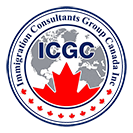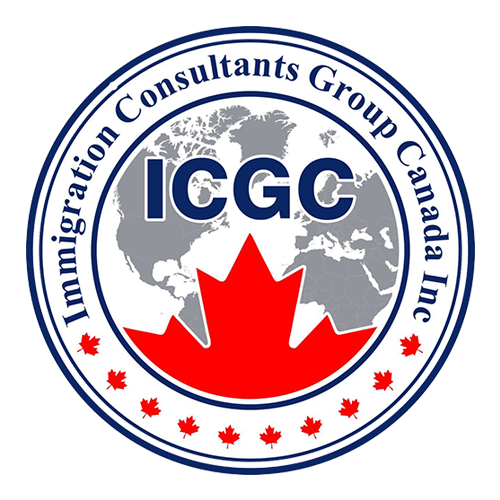Canadian immigration in 2022: A preview of the year ahead
The coronavirus pandemic is set to continue to loom large over Canadian immigration in 2022.
The pandemic is causing Canada to constantly update its travel restrictions. It has also created greater application backlogs, and a shift in Canada’s policies to prioritize applicants within Canada. Despite the pandemic, however, the Canadian government has remained committed to its three-fold immigration policy objectives of strengthening the economy, reuniting families, and assisting those with a humanitarian need. Immigration levels targets have increased during the pandemic and application processing continues. Nonetheless, there is no doubt that COVID will remain the main issue influencing Canadian immigration as the pandemic enters its third calendar year. With that being said, the following is an overview of key Canadian immigration developments to look out for over the next 12 months.
Immigration Levels Plan 2022-2024 and 2023-2025
Canada will very likely get two immigration levels plan announcements in 2022. The plans will outline Canada’s targets for new permanent resident arrivals and what programs the new immigrants will arrive under. Under the current plan, Canada is looking to welcome 411,000 new immigrants in 2022 and 421,000 in 2023, however these figures may be revised when the federal government unveils their new levels plans.
The first will come by February 10 when minister Fraser is set to table Canada’s Immigration Levels Plan 2022-2024. This will be the announcement that usually takes place each autumn, but has been delayed due to the September 2021 Canadian election.
The second announcement will be the normal one and barring the very unlikely scenario Canada holds another election, will occur by November 1st.
There is the possibility of even higher levels due to various factors such as growing labour shortages in Canada, application backlogs, and the federal government’s commitment to resettle 40,000 Afghan refugees. Minister Fraser has said the government is open to higher levels assuming that Canadian employers and communities are receptive to the idea.
Express Entry
Following perhaps the most exceptional year for Express Entry since it was launched in 2015, the coming year is poised to see even more major Express Entry developments. Express Entry draws only invited Canadian Experience Class (CEC) and Provincial Nominee Program (PNP) candidates in 2021. This is exceptional since Federal Skilled Worker Program (FSWP) candidates were the main source of Express Entry immigrants prior to the pandemic but have been excluded altogether from Express Entry invitations over the last year. They currently comprise some 85 per cent of candidates in the Express Entry pool. IRCC’s rationale has been that inviting more CEC candidates will better allow it to achieve its goal of landing 401,000 new immigrants in 2021 since CEC candidates are overwhelmingly based in Canada, and hence less likely to face COVID-related disruptions during the permanent residence landing process. Since FSWP candidates tend to be located abroad, IRCC has excluded them from invitations due to concerns they will be less likely to land within 2021 which would undermine the immigration department’s ability to achieve its 401,000 newcomer target. IRCC’s rationale for continuing to invite PNP candidates has been to help provinces address their labour market goals through immigration.
When will Canada resume Express Entry FSWP draws?
No one can predict when IRCC will resume invitations to FSWP candidates as IRCC has not provided any indication on its Express Entry plans. The best guidance at this point is a September 2021 IRCC memo suggesting the department wants to cut its Express Entry backlogs by more than half to return to its service standard of processing Express Entry permanent residence applications within six months before considering inviting FSWP candidates again. If IRCC is able to continue its current pace of processing applications, Express Entry backlogs will likely be cut in half in early 2022.
Express Entry reforms
The federal government has made several statements indicating they plan to introduce Express Entry reforms. In Budget 2021, they announced a proposal to give the minister more flexibility to invite Express Entry candidates that meet Canada’s labour market needs, but no details have been given. In Minister Fraser’s new mandate letter, Prime Minister Justin Trudeau asks him to expand permanent residence pathways for international students and temporary foreign workers via Express Entry.
What else can we expect?
- Backlogs: The pandemic has caused IRCC’s inventory to grow to 1.8 million immigration applications. Trudeau asks Fraser to improve processing times including among applications affected by the pandemic.
- TEER System to Replace NOC Skill Levels: By fall 2022, IRCC and Employment and Social Development Canada (ESDC) will use the new Training, Education, Experience, and Responsibilities (TEER) system to classify occupations. All immigration applicants will need to pay attention to this change since it will affect the immigration and foreign worker eligibility of some individuals. IRCC and ESDC will provide guidance to stakeholders in advance of the changes taking effect.
- Citizenship applications: The mandate letter reiterates the government’s commitment to make Canadian citizenship applications free, a promise that was made in 2019 before the pandemic forced Canada to shift its immigration priorities. In addition, IRCC has committed to allowing all citizenship candidates including families to be able to submit their applications online.
- Trusted employer system: For several years the Canadian government has discussed launching a Trusted Employer system for the Temporary Foreign Worker Program (TFWP). This would allow trusted employers to fill job vacancies more quickly through the TFWP. Launching this system is listed as a priority in Fraser’s mandate letter.
- Afghan refugees: Canada has committed to resettling 40,000 Afghan refugees and this has been one of IRCC’s top priorities since August.
- PGP 2022: IRCC has yet to provide information on the Parents and Grandparents Program (PGP) 2022. The main piece of information we have at this point is Canada will continue to look to admit 23,500 immigrants under the PGP in the coming year.
- Travel rules: Canada’s travel rules continue to evolve in response to the pandemic. A notable development to be aware of is that beginning on January 15, 2022, more travellers seeking entry to Canada will need to be fully vaccinated on arrival, including family members, international students above the age of 18, and temporary foreign workers.


